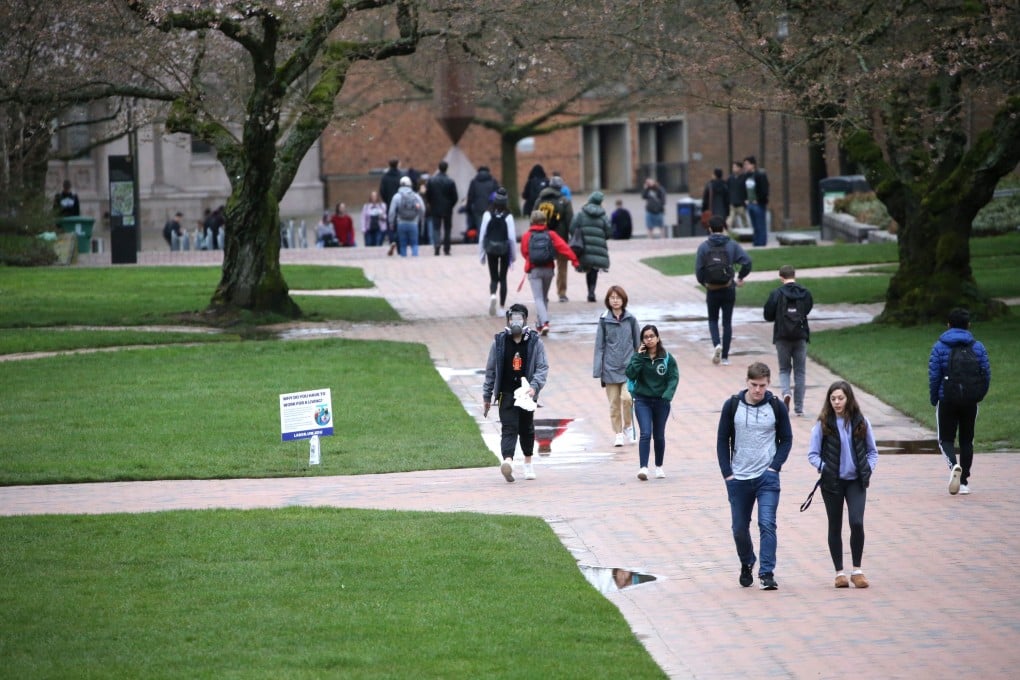Coronavirus: Chinese students in US face wrenching choice amid global upheaval – stay or return home
- With classes moved online and the contagion spreading in the US, many are choosing to buy plane tickets and leave
- But after first promoting the narrative that China is now a safe haven amid the pandemic, Beijing is discouraging its citizens from returning

Patricia Chen’s New York-based art college closed its classroom doors on March 11 and moved instruction online starting this week. While some of her fellow Chinese students grabbed plane tickets and hurried home amid the deadly coronavirus outbreak, she chose to stay.
The School of Visual Arts respected and understood the choice of those who left, Chen said, and offered ways for students to access emails and online courses while they were in China, where most mainstream US websites are blocked.
As the United State is in semi-lockdown, some Chinese students are in a dilemma over which country is more dangerous to be in while the contagion spreads throughout the world.
When the first dozen cases were confirmed in New York, Kai Zheng, a graduate student at Fordham University, was planning to go back to China. That was before her school moved all classes online. Facing the uncertainty of whether and when she would be able to come back to the US, her parents suggested that she stay.

“I am frustrated that if I go back to China now, I could contract the virus as I have to transit and the plane will be full. I am also stressed while I am here. What if I get sick? Will I get timely medical treatment as I am a foreigner?” said Zheng, 23.